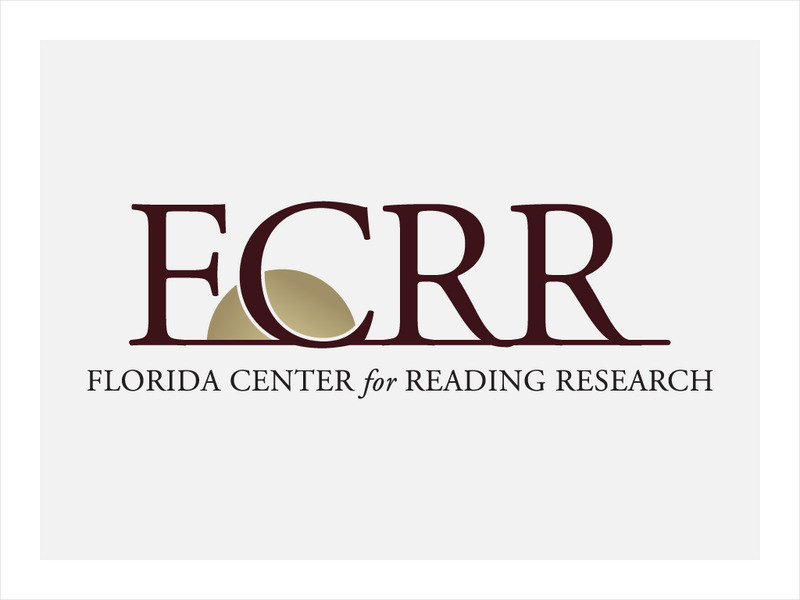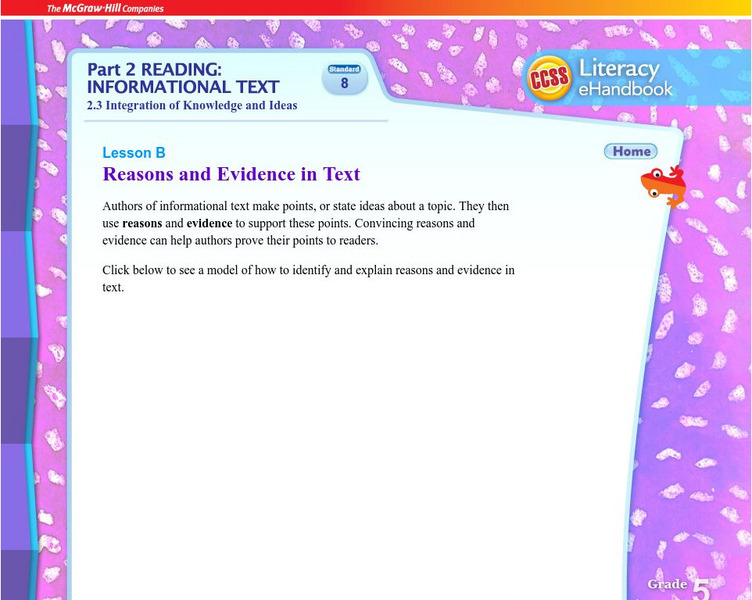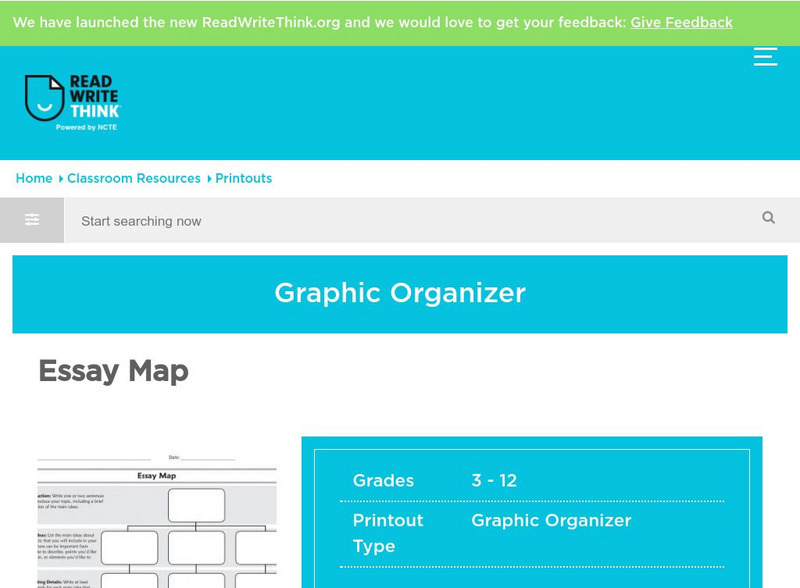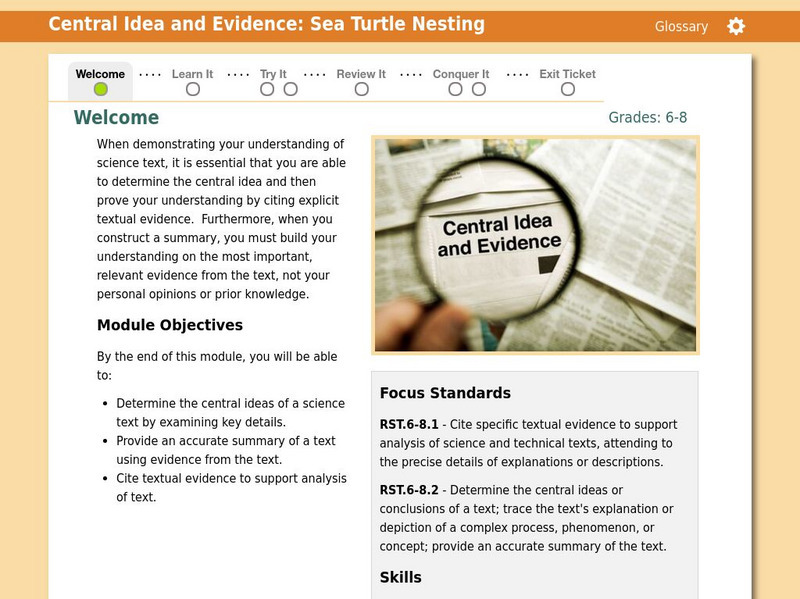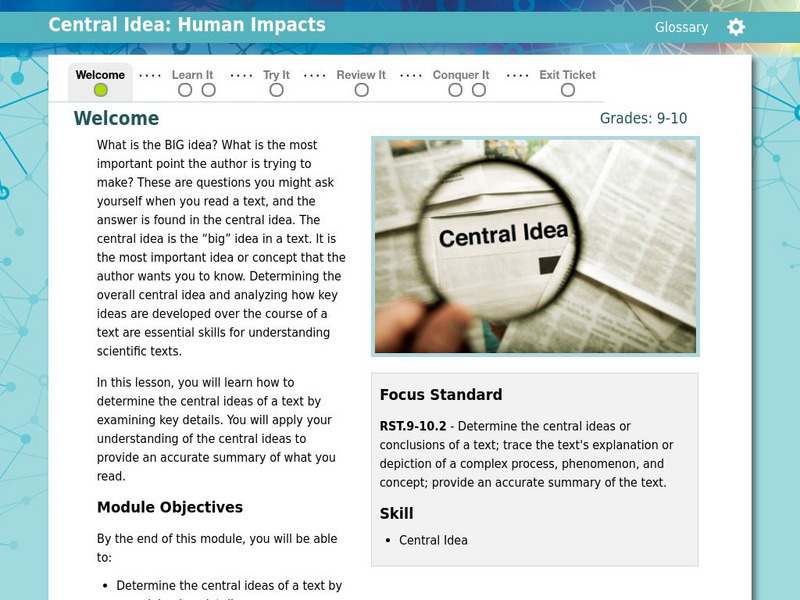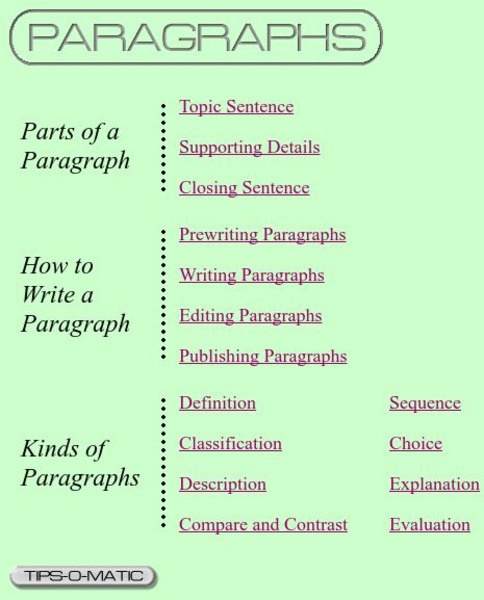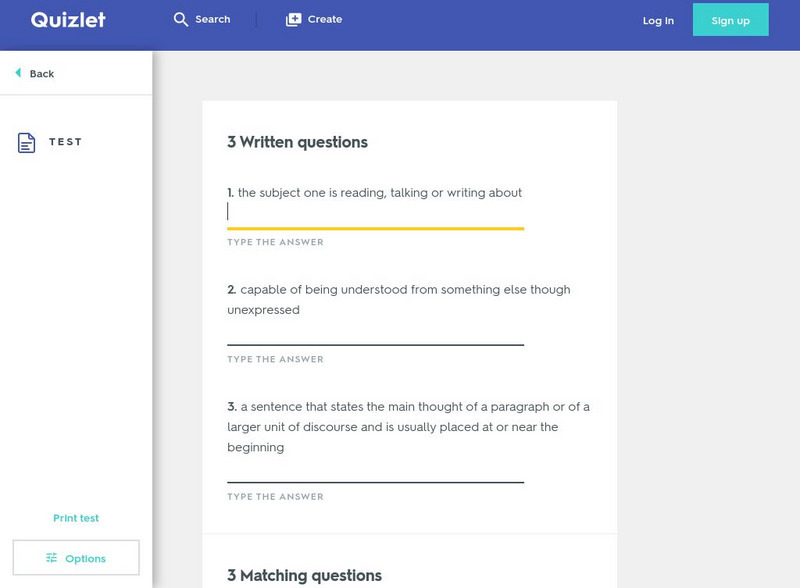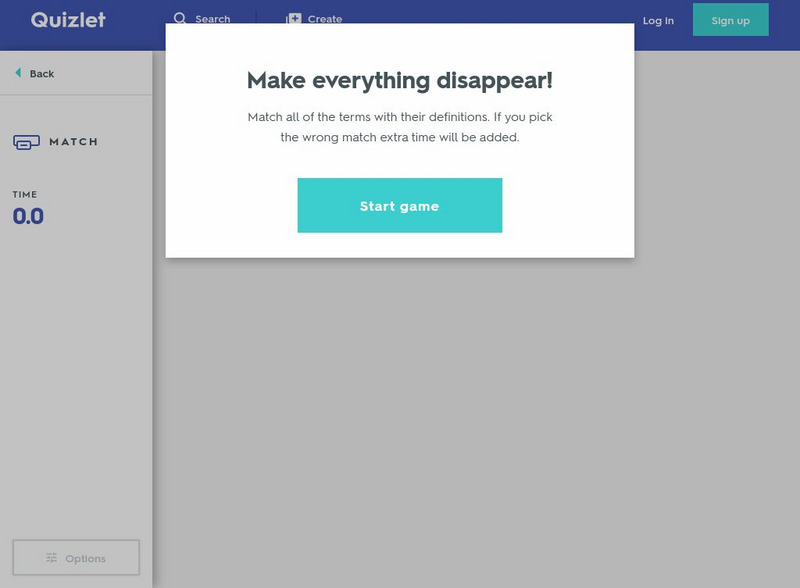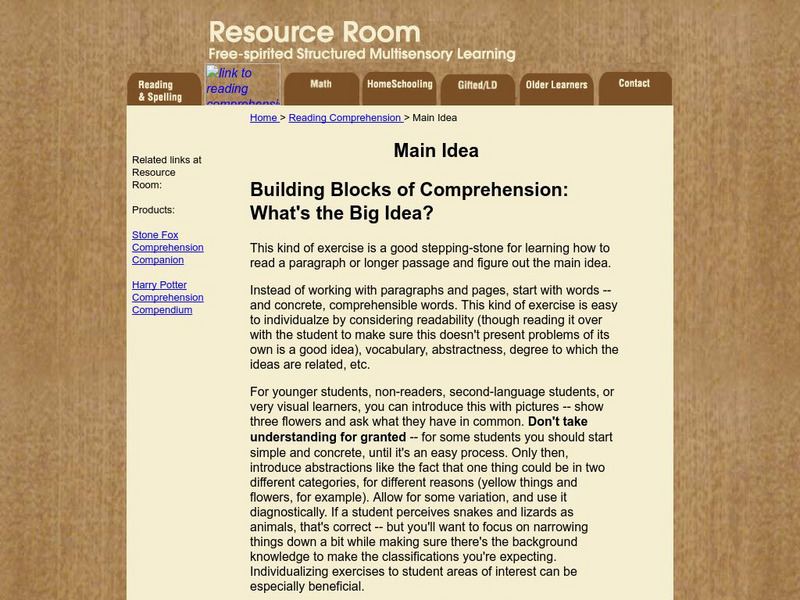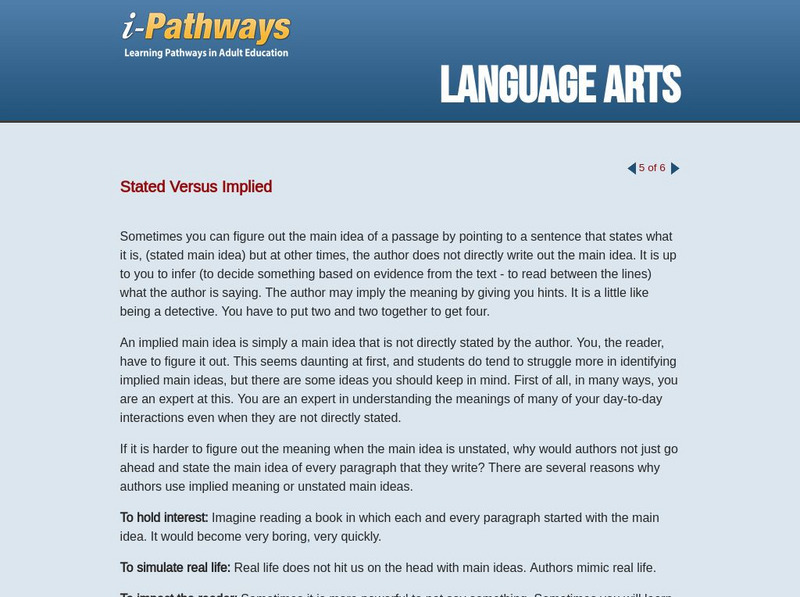CPALMS
Cpalms: What Do You Do With a Tail Like This?
[Free Registration/Login Required] In this lesson, students will use What Do You Do With A Tail Like This? by Steve Jenkins and Robin Page to identify the main topic and key details using the illustrations and text. Students will work to...
ReadWriteThink
Read Write Think: Nonfiction Pyramid
A printable pyramid for use with nonfiction texts while students identify the main ideas and supporting details within a text. Students also determine author's purpose and key vocabulary words. Directions on how to use this type of...
Education Development Center
Tv411: Summarizing Activity 2
This activity asks students to differentiate between main ideas and supporting details.
Florida Center for Reading Research
Florida Center for Reading Research: Expository Text Structure: Summarizing [Pdf]
A lesson plan in which learners read a text and record the main ideas and supporting details on a graphic organizer. Students then complete the organizer by writing a summary of the text. Materials are included.
Louisiana Department of Education
Louisiana Doe: Louisiana Believes: English Language Arts: Grade 5: Shutting Out the Sky
Focused on immigrant life in the United States and how families sought the American dream, this unit offers students an understanding of how members of a culture meld into communities while trying to maintain cultural identity and honor...
Florida Center for Reading Research
Florida Center for Reading Research: Expository Text Structure: Just the Facts
A lesson plan in which students read a text and complete a graphic organizer to identify the topic and supporting details or facts. Materials are included.
Polk Brothers Foundation Center for Urban Education at DePaul University
De Paul University: Center for Urban Education: Reversing the Chicago River [Pdf]
"Reversing the Chicago River" is a one page, nonfiction passage about how the leaders of Chicago reversed the polluted Chicago River so that it emptied into the Mississippi River instead of the lake. It is followed by questions which...
Curated OER
Mc Graw Hill: Part 2 Reading: Informational Text: Reasons and Evidence in Text
Reasons and evidence are given by the author to support topics or ideas. In this resource, learn about finding reasons and evidence in a text. Includes downloadable worksheet.
Wisc-Online
Wisc Online: Identifying the Main Idea
This resource defines main ideas and is an interactive way to assess a student's ability to correctly find main ideas from paragraphs.
Curated OER
Mc Graw Hill: Identify the Main Topic and Key Details
This is a practice exercise to help teach how to find the main topic of a passage by looking at key details. CCSS.ELA-Literacy.CCRA.R.2
ReadWriteThink
Read Write Think: Essay Map
A fillable essay map in PDF format with boxes for an introduction, main ideas, supporting details, and a conclusion. Directions on how to use this type of graphic organizer as well as lists of teaching ideas and related resources are...
Other
Curriculum Associates: Determining Theme or Central Idea [Pdf]
In this reading comprehension lesson unit, students are guided in learning how to find the main theme or idea of a text and understanding how details in the text convey that. Includes lots of exercises and examples, as well as...
Savvas Learning
Pearson Longman: Main Points, Support Points, and Specific Details
Part of the Pearson Longman series entitled "Sentence Resources for Writers", this site assesses the high school student's ability to identify main points and develop specific details and support points. Includes ten multiple choice and...
Thinkport Education
Thinkport: Central Idea and Evidence: Sea Turtle Nesting
Students practice finding the central idea and summary of a nonfiction piece about sea turtle nesting.
Thinkport Education
Thinkport: Determine the Central Idea: Human Impacts
Students will learn how to identify the central idea of a text about human impacts by examining key details.
Beacon Learning Center
Beacon Learning Center: Web Lesson: Get the Idea
Read through a lesson about main ideas and supporting details to understand their importance. Practice choosing the main idea of three nonfiction paragraphs. Features practice activities to enhance learning.
ACT360 Media
Writing Den: Paragraphs
How do you write a paragraph? Use this site to learn more about the different parts of a paragraph.
Quizlet
Quizlet: 2nd Grade: Unit 2 Reading: Main Idea: Test
This interactive assessment features 6 matching and 5 multiple-choice questions over terms relating to the main idea and their definitions. These terms include the following: topic, topic sentence, main idea, detail, supporting details,...
Quizlet
Quizlet: 2nd Grade: Unit 2 Reading: Main Idea: Match
In this interactive learning game, students match terms relating to the main idea with their definitions. These terms include the following: topic, topic sentence, main idea, detail, supporting details, summary, summarize, retell, infer,...
Other
Resource Room: What's the Big Idea?
This exercise can be used to help students develop understanding of main idea and supporting details. Students are given a list of words to analyze, decide the theme and write a common subject that defines the group.
Other
I Pathways: Language Arts: Stated Versus Implied
Learn about the difference between a stated main idea and an implied main idea. Then, practice finding the stated and implied main ideas in two short texts.
Other
Oakland Writes: Student Exemplars: Sixth Grade: Expository Essay [Pdf]
An expository essay written by a sixth-grader with notes calling attention to important writing concepts evident in the essay including a well-written title, opening sentence, thesis, main ideas, supporting details, and more.
Other
Academic Reading: Sample Task [Pdf]
This Academic Reading task provides a practice assessment for identifying headings and subheadings. In the task, students must read the selection and then determine the best subheading for each of the sections.
ReadWriteThink
Read Write Think: Power Notes
A printable note-taking format where students create an outline by assigning powers to the main idea and supporting details. Directions on how to use this type of rubric as well as lists of teaching ideas and related resources are also...




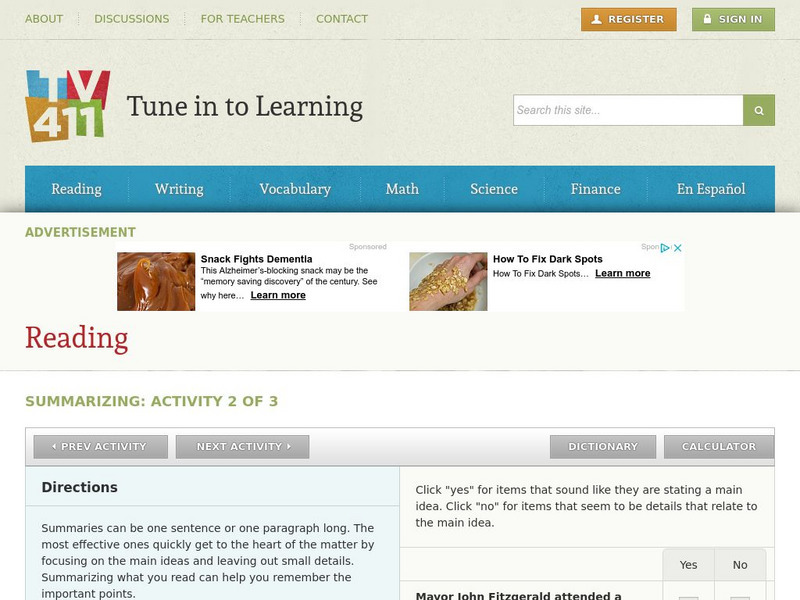
![Florida Center for Reading Research: Expository Text Structure: Summarizing [Pdf] Lesson Plan Florida Center for Reading Research: Expository Text Structure: Summarizing [Pdf] Lesson Plan](https://content.lessonplanet.com/knovation/original/509106-80e78b7399a2808435954652f1b4d966.jpg?1661786965)

